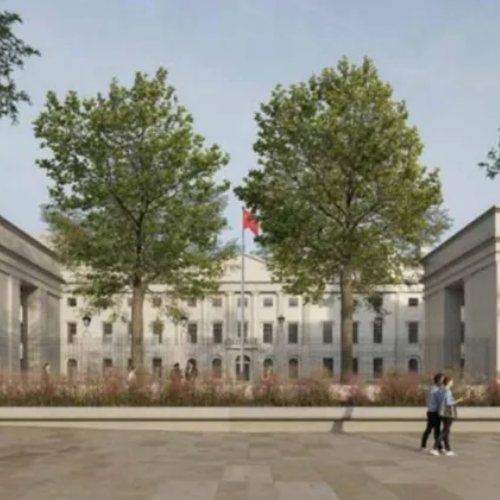Plans for a massive new Chinese embassy in central London have caused alarm among British intelligence services and government officials. The proposed site is located in a highly sensitive area, raising concerns about its potential use for espionage.
This location, near the Tower of London, sits close to key fibre-optic cables that carry critical internet and communication data across the UK. These cables connect vital systems for banking, businesses, and government communication. British security experts worry that if the embassy is approved, it could give Chinese agents an opportunity to tap into these cables, posing a threat to national security.
British intelligence agencies have been cautious about China’s activities in recent years. A 2019 report highlighted risks tied to this specific area, warning about its proximity to vital infrastructure. Despite these concerns, the decision on whether to allow the embassy to proceed now rests with a senior government minister following a review.
Opposition from Security Experts and Residents
The proposed embassy has faced strong resistance from multiple groups. Local residents, community leaders, and government officials are urging authorities to block the project, citing security risks and concerns over privacy. Some residents worry that it could act as a “secret police station,” listening to private conversations and monitoring nearby communications.
In December, a local council unanimously rejected China’s application to build the embassy. Residents near the proposed site, whose homes are adjacent to the area, have voiced concerns about their safety and privacy. Additionally, local groups are troubled by the building’s location near a major BT internet exchange, which handles large amounts of data traffic.
China Behind 210 Cyberattacks: Japan Faces Serious Security Breach
A group of British lawmakers has also written a formal letter to warn against the embassy. They say allowing construction on this site would give China easy access to the UK’s sensitive communication systems. These lawmakers argue that, given past incidents involving China’s alleged interference in other countries, the risk is too significant to ignore.
A Strategic Location Raises Fears
Experts explain that the location of an embassy is critical when it comes to intelligence work. All countries, including the UK, often use their embassies for collecting information. However, the sheer size and location of the proposed Chinese embassy have heightened concerns.
The planned site lies between two of the UK’s most important financial districts: the City of London and Canary Wharf. These areas are home to major banks, stock exchanges, and other essential businesses. Being close to these hubs could make it easier for China to monitor financial activities or access sensitive information.
Additionally, the embassy would be located near three large data centres, further increasing the risk of potential spying. Tapping into fibre-optic cables typically requires physical access to the cables themselves, making the embassy’s proximity a major point of concern.
Spy Captured in China for Attempting to Photograph Sensitive Military Facility
A high-ranking intelligence source recently noted that embassies around the world are often used for gathering electronic information, but the location of this particular site makes it especially valuable for such purposes. This has fueled fears that approving the embassy could put critical British infrastructure at risk.
China Pushes Back on Accusations
China has strongly denied any wrongdoing or malicious intent behind its plans for the new embassy. A spokesperson dismissed the concerns as “groundless” and criticized those opposing the project as spreading false information. According to Chinese officials, the new embassy is needed to improve relations between China and the UK and to better serve Chinese citizens in Britain.
The Chinese government purchased the land for the embassy several years ago with permission from the UK government at the time. They argue that under international law, host countries are required to support the construction of diplomatic missions. Beijing insists that the new embassy will focus solely on promoting cultural ties and strengthening diplomatic relations.
However, critics remain unconvinced, pointing to China’s alleged involvement in past incidents of cyberattacks and efforts to compromise communications systems in other countries. With growing security concerns, the proposed embassy has become a flashpoint in the already tense relationship between the UK and China.
For now, the decision on whether to approve the embassy remains uncertain. Security experts and lawmakers continue to emphasize the risks, urging the government to prioritize the safety of the UK’s infrastructure and its citizens.


